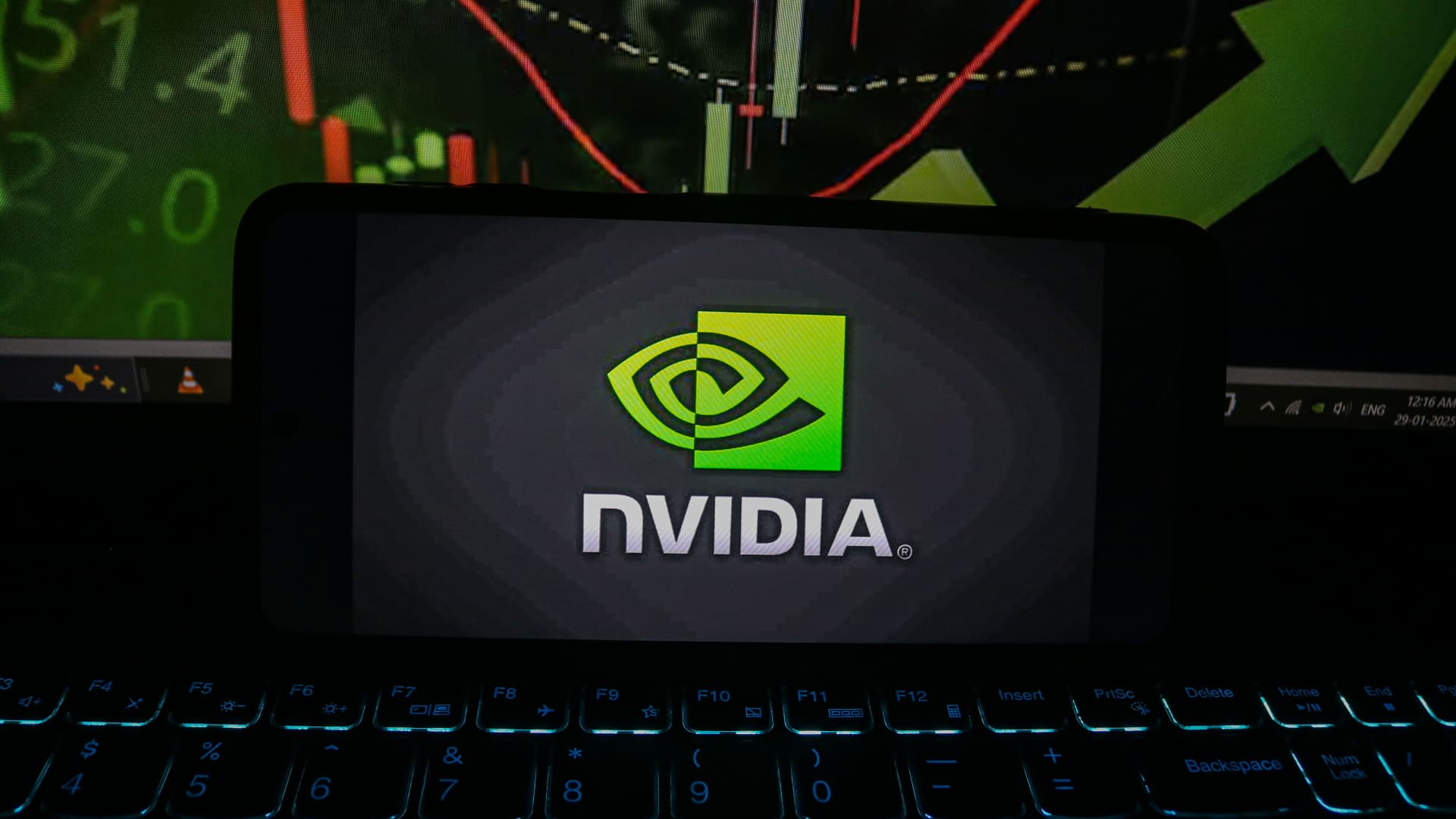The recent DeepSeek-fueled sell-off in technology stocks has made Nvidia shares ripe for the picking, according to Morgan Stanley. Analyst Joseph Moore reiterated Nvidia as a top pick and repeated an overweight rating on the stock in a Thursday note to clients. His $152 price target on the dominant maker of artificial intelligence chips indicates roughly 22% potential upside ahead for the stock, based on Wednesday’s close. “While sentiment has worsened around potential longer term risks, near term business continues to firm, Blackwell supply visibility continues to build [and] customer desire to spend is clearly on display,” Moore wrote. “We remain very optimistic on how the balance of the year plays out.” Nvidia shares have soared nearly 85% over the past year but took a hit after the emergence of Chinese AI startup DeepSeek, which used less-efficient Nvidia chips to create an AI model that rivaled OpenAI’s ChatGPT, but at a fraction of the cost American tech hyperscalers are committing to the AI race. DeepSeek bought 10,000 Nvidia A100 chips, first released in 2020, and two generations prior to Nvidia’s current Blackwell chip, before the A100s were restricted for sale in China in late 2023, according to the Stanford University Cyber Policy Center . The tech sell-off on Jan. 27 led Nvidia to plunge 17%, losing a record amount of market value in one day of any company in history. Nvidia, which will post earnings on Feb. 26, is now down more than 6% this year. NVDA 1Y mountain Nvidia stock performance over past year. According to Moore, DeepSeek creates some headwinds around export controls and longer-term AI investment, but near-term catalysts in the form of Blackwell and Hopper chip solutions for Nvidia remain intact. Demand remains strong for Blackwell and “very promising” signals for future demand came in CoreWeave’s Tuesday announcement that it brought Nvidia’s GB200 NVL72 instances to its platform, making it the first cloud service provider to make Blackwell generally available, Moore said. The analyst is also sticking by Nvidia as capital spending commentary from the company’s largest customers reaffirmed their AI investment plans. Nvidia’s cloud customers, for example, remain committed to buying more graphics processing units in an effort to boost revenue, he said. “For the investments that are not generating revenue today there remains an ongoing commitment to advancing the state of the art,” Moore said. “Many of the architects of the largest [Artificial General Intelligence] clusters have reiterated a commitment to scaling out large training clusters with no indication that DeepSeek changes that momentum,” the analyst added. Looking ahead, Moore believes the biggest long-term catalyst for Nvidia goes beyond AI training and taps into the company’s leadership in the inference market, particularly as inference tasks become more complex. Inference refers to a process where a trained AI model applies its knowledge to new data and can make predictions or decisions based on that data. “We remain convinced that Nvidia is the biggest beneficiary of long inference workloads,” he said.





